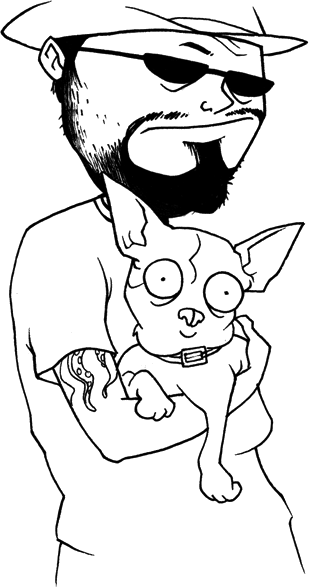How to Write a Story (for Geeks)
So maybe you’re a geek and you want to write a personal story for someplace like Fray. Writing, like life, is personal. Do whatever works for you. But if you need a hand, here are some things you could try. Take any that seem helpful and discard the rest.
First, tell the story – with your mouth – to someone. Doesn’t matter who. Call up an old friend and say “hi! can I tell you a story?” Doing this will help you move the story out of your brain and into words. It’ll also help you know which parts make the listener laugh, or ask questions. Do this a few times to get a feel for the story.
Now it’s time to write. Turn off the television, disconnect from the internet, and take away all distractions. Listen to music if it helps you concentrate, but not if it’s distracting (I have a special playlist of wordless music I like to write to). My most productive writing sessions took place on long flights. There’s a reason for that. (Internet-enabled airplanes will ruin me.)
Understand that the writing process is totally different than the editing process. They literally take place in different parts of your brain. During the writing process, you must turn off all self-doubt and self-criticism. Just shake the words out of your brain. They will be in the wrong order, misspelled, and generally awful. This does not matter. All that matters is that you get them out of your brain.
You will be tempted to stop and edit, fuss about, be perfectionistic. Geeks are especially succeptible to this because we’re detail-oriented people. Don’t do it. When you keep switching gears between writing and editing, you just increase your mental overhead and therefore produce less. Avoid the temptation. Just write.
When you’re done writing (you’ll know), switch gears to editing. Editing is just as creative and twice as important, but it’s almost impossible to do a good edit job without the raw materials. So get them out, then attack with the edit.
When you’re editing, think about bullet time. You know in the Matrix movie, when everything slows down so you can watch the bullets zoom? If the whole movie was filmed that way, it’d be boring, right? Storytelling is like that. You can speed up time (by skipping over details) or slow down time (by taking more words to describe a moment). Make sure you’re using bullet time to savor the important moments, speed through the rest.
The most common edit I make in Fray stories is to lop off the beginning. Your story generally doesn’t take as much setting up as you think. By all means, write the set up – it helps get it out of your brain – then edit it out.
One technique is to start in the middle. It’s an internet truism that people don’t read online, they skim. But the truth is, that’s how people read everything. So you have to hook the reader early. Pick the most “whoa!” moment in the story and start there. Then go back and explain how you got there. (For example.)
Remember that a written story is different than a verbal story. Our vocal crutches (“Well, I’ll tell ya,” etc.) are just clutter in writing. Edit ’em out. Also, when people get nervous, they get wordy. Remember that a shorter description is always better. Don’t say you were “happy and elated” – they mean the same thing. Pick one.
Finally, make sure you end with something that wraps up the narrative. If the story has an action that naturally caps things, awesome. If it doesn’t, then you’ll need to add closure. Don’t labor it – it can be brief – but just add a bow.
And never, ever, end with “but that’s another story.”
